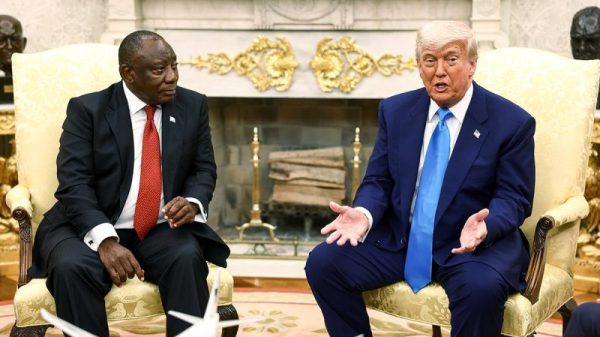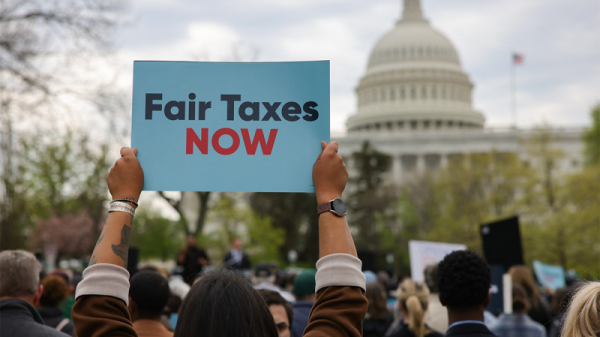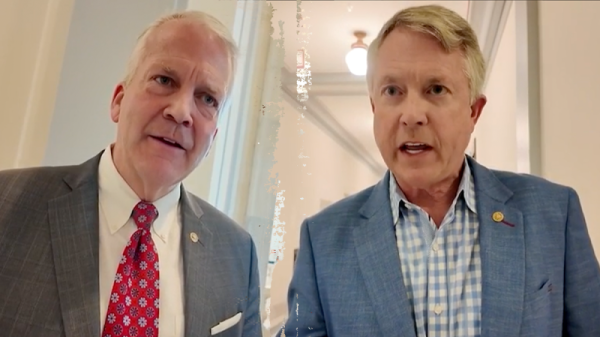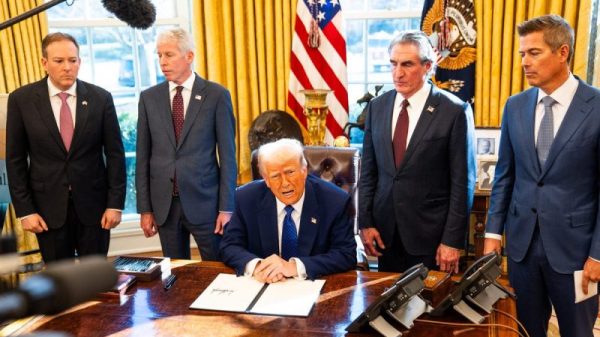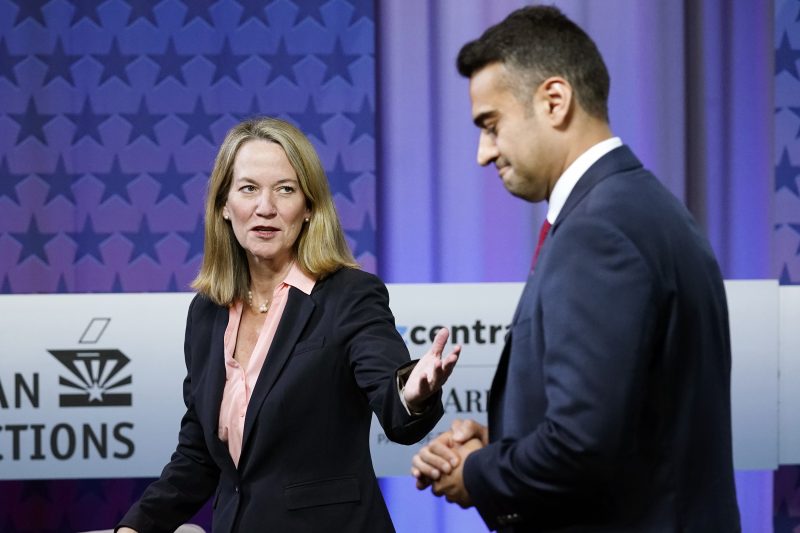PHOENIX — Arizona’s top prosecutor is ramping up a criminal investigation into alleged attempts by Republicans to overturn the 2020 presidential election results in the state by signing and transmitting paperwork falsely declaring Donald Trump the winner, according to two people familiar with the investigation.
Arizona Attorney General Kris Mayes (D) assigned a team of prosecutors to the case in May, and investigators have contacted many of the pro-Trump electors and their lawyers, according to the two people, who spoke on the condition of anonymity to candidly describe the probe. Investigators have requested records and other information from local officials who administered the 2020 election, the two people said, and a prosecutor has inquired about evidence collected by the Justice Department and an Atlanta-area prosecutor for similar probes.
It is unclear if the investigation will broaden into other attempts to undermine President Biden’s victory in the state, including a pressure campaign by Trump and his allies to thwart the will of voters and remain in office.
Dan Barr, Mayes’s chief deputy, said the investigation is in the “fact-gathering” phase. He declined to say whether subpoenas have been issued and which state statutes the team thinks might have been broken.
“This is something we’re not going to go into thinking, ‘Maybe we’ll get a conviction,’ or ‘Maybe we have a pretty good chance,’” he said. “This has to be ironclad shut.”
This is one of several investigations into attempts to overturn the election results. There is a federal criminal probe being led by special counsel Jack Smith, who was appointed by Attorney General Merrick Garland to examine the sprawling efforts in several states intended to reverse Trump’s loss.
Smith’s team has interviewed and subpoenaed about a dozen Arizonans. In Georgia, Fulton County District Attorney Fani T. Willis (D) has spent more than two years investigating efforts by Trump and others to overturn his narrow loss in the state, and she is expected to announce a charging decision this summer.
Both of those investigations are much more sprawling in scope and further along than the new one in Arizona.
Mayes campaigned during the 2022 midterm election on a pledge to investigate the 22 Republicans who signed two sets of documents claiming to be the state’s chosen electors for Trump in the electoral college, despite his loss. One set was signed by the state party chair and other high-profile Republicans, and the other involved party activists. Shortly after taking office in January, Mayes said that her office had launched a probe — but for several months there were no outward signs of an inquiry.
Mayes declined to comment Wednesday. In an interview in February, she said her administration was in the “very, very” early phase of reviewing information about the elector activities but wouldn’t discuss details about a coming probe.
“There has to be a deterrent to this happening again,” she said. “We can’t have this occurring again in Arizona — or in the country.”
Prosecutors at the local, state and federal levels have grappled with the question of whether the elector scheme violated the law and, if so, whether it would be best to pursue it state-by-state or at the federal level.
In January 2022, Democratic state attorneys general in Michigan, New Mexico and Wisconsin referred information about the elector scheme to the Justice Department, indicating that they believed the effort was coordinated by the Trump campaign nationally and would be best investigated by federal authorities. Those referrals ultimately resulted in the Justice Department probe led by Smith.
But in Georgia, an investigation of whether the elector effort and other actions by Trump after the 2020 election broke state law has been ongoing. The district attorney has offered some form of immunity to 12 of the 16 electors, according to three people with knowledge of the investigation.
Ongoing investigations involving Donald Trump
1/6
End of carousel
The activity in Arizona represents a new attempt to tackle the issue at the state level, as Mayes explores whether Arizona law was violated.
In the aftermath of the 2020 presidential election, Arizona became a centerpiece of Trump’s unfounded accusations of widespread voter fraud. Republican candidates for president traditionally win Arizona, and Biden was the first Democrat to win the state in 24 years.
Trump and his allies tried to pressure state and local officials to employ strategies to help him stay in power. Election officials and others in the state faced violent threats and harassment. In 2021, the GOP-controlled state Senate commissioned a taxpayer-funded review by a firm with no election auditing experience that confirmed Biden’s win.
Continued denial of the election results became central to the campaigns of nearly every major Republican candidate in the midterm election, including gubernatorial candidate Kari Lake. Many Democratic candidates campaigned on a promise of restoring democracy and unexpectedly swept key races. Now in control of most major statewide offices, they have an opportunity to hold Republicans accountable for their actions after the 2020 election.
Mayes’s Republican predecessor, Mark Brnovich, did not pursue an investigation into the efforts to use invalid Trump electors. He said at the time that information about the elector efforts should be provided to federal investigators, and his special unit created to crack down on illegal voting and other election-related crimes instead dug into conspiracies.
Alexander Kolodin, an attorney for some of the Republicans who were Trump’s electors, declined to comment. The electors who were part of a pro-Trump slate promoted by the state party either declined to comment or did not respond. Most of the electors from the second slate could not be reached for comment or declined to comment. One person from that slate said Wednesday that the group “didn’t even fully understand what that paperwork was for.” He declined to explain how that effort came together.
The electors have said little about their activities, which were intensely scrutinized in the aftermath of the Jan. 6, 2021, insurrection at the U.S. Capitol. Kolodin argued in an August 2022 court filing that Trump electors simply created a backup plan in case legal challenges to Arizona’s outcome were successful. The filing was part of a lawsuit seeking to prevent the U.S. House committee investigating Jan. 6 from accessing cellphone records of Kelli Ward, an elector who was the Arizona GOP chair. Ward did not respond to a request for comment.
“Their beliefs and the actions they took were no secret,” the filing said. “Their vote was posted on YouTube and Dr. Kelli Ward wrote a book about it.
“The connection between that action, which took place on December 14, 2020, and the riot at the Capitol on January 6, is far from obvious,” the filing said.
Experts in Arizona’s election law said state law doesn’t specifically address a competing elector scenario, but prosecutors may try to build a case around state statutes ranging from fraud to forgery to conspiracy, or offering a document to a government office that has been falsely made, or contains false information.
A successful case could hinge on the state of mind of the electors, two Arizona criminal defense attorneys said.
“You’re going to have to have some meat on the bones and show there is some evidence of intent,” said Ashley Adams, a criminal defense attorney and former federal prosecutor.
Tim Eckstein, a criminal defense lawyer who has worked on election-related cases, said the argument at the time by some Republicans that the state legislature had the constitutional authority to name the electors could complicate a criminal case.
“The very bottom line is you don’t want to criminalize conduct that wasn’t clearly criminal at the time somebody engaged in it,” he said.
Republicans in seven states that Trump lost in 2020 have said they wanted the pro-Trump elector slates in place to compete with official slates for Biden in case election outcomes were somehow changed on or before Jan. 6, 2021, when Congress met to affirm Biden’s win.
After Trump’s defeat, Arizona Republicans mounted legal fights as they sought to overturn Trump’s loss. Among them was a lawsuit filed by the Trump electors in U.S. District Court in Arizona that alleged widespread fraud and argued that the state had the authority to choose its electors by other means.
With those challenges underway, representatives for Trump’s campaign called an Arizona Republican in early December 2020 and proposed assembling an alternate slate of electors on Dec. 14, 2020, the day the electoral college formally convened, according to a person familiar with the conversation, who spoke on the condition of anonymity for fear of retribution.
During one conversation, which has not been previously reported, the campaign representatives described the plan as a legal maneuver to keep alive Trump’s prospects for a second term, the person said. A spokesman for Trump has not responded to a request for comment.
“It came out of the blue,” the person said of the call. “This was to show [Trump] that everyone was doing everything they could.”
Days later, Trump’s electors in Arizona and in other states followed through on the plan.
In Phoenix, the electors gathered at the state party’s headquarters for a signing ceremony. The party publicized the event on Twitter, writing, “The Signing.”
Another group that called itself “The Sovereign Citizens of the Great State of Arizona” sent signed and notarized certifications declaring themselves the state’s electors to the National Archives and the Arizona secretary of state’s office. Katie Hobbs, then the secretary of state, asked the state attorney general’s office to investigate that group’s use of the state seal without authorization. No inquiry publicly materialized. Mayes told The Washington Post in February that the statute of limitations had passed on misuse of the state seal. Those familiar with the current investigation said that the group may have violated other statutes.
Aside from the elector probe, the state prosecutor has weighed scrutinizing other efforts to delegitimize Trump’s loss, a person familiar with the office’s discussions said.
“When you start investigating one thing, you find out stuff about another,” the person said. “No one is foreclosing anything.”
Josh Dawsey contributed to this report.

